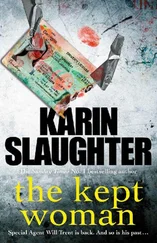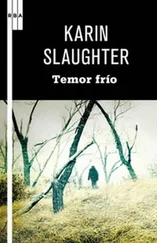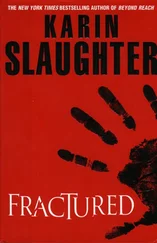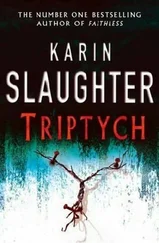Sara told the girl, “He’s very nice.”
“He thinks you’re nice, too.” Nan gave a sly grin as she typed an email. “I ran into him at the lab. He’s super cool.”
Sara watched the girl’s thumbs move, feeling three hundred years old. She couldn’t remember if she’d ever been that young. Neither could she imagine Dale Dugan sitting down and having a nice gossip with this giddy young nurse.
Nan finally looked up from the device. “He said you’re fascinating, and that you had a great time, and that you shared a very nice kiss.”
“You’re emailing him?”
“No.” She rolled her eyes. “He said that in the lab.”
“Great,” Sara managed. She didn’t know how to deal with Dale, who was either deluded or a pathological liar. Eventually, she would have to talk with him. The flowers alone were a very bad sign. She would have to rip off the Band-Aid quickly. Still, she couldn’t help wondering why the man she wanted was unavailable and the available man was unwanted. Thus continued her quest to turn her life into a television soap opera.
Nan started typing again. “What do you want me to tell him that you said?”
“I haven’t said anything.”
“But you could.”
“Uh …” Sara stood up from the couch. This was much easier when you could just slip a note into somebody’s locker. “I should go get lunch while things are quiet.”
Instead of heading toward the cafeteria, Sara took a left toward the elevators. She almost got mowed down by a gurney flying down the corridor. Stab wound. The knife was still sticking out of the patient’s chest. EMTs screamed vitals. Doctors snapped orders. Sara pressed the elevator down button and waited for the doors to open.
The hospital had been founded in the 1890s, and was housed in four different locations before finding its final home on Jesse Hill Jr. Drive. Constant mismanagement, corruption, and plain incompetence meant that at any given time in its storied history, the hospital was about to go under. The U-shaped building had been added onto, remodeled, torn down, and renovated so many times that Sara was certain no one could keep count anymore. The land around the facility was sloped toward Georgia State University, which shared its parking decks with the hospital. The ambulance bays for the emergency department backed onto the interstate, at what was called the Grady Curve, and were a full story above the main front entrance on the street side. During Jim Crow, the hospital was called the Gradys, because the white wings were on one side, looking onto the city, and the African American wings were on the other, looking onto nothing.
Margaret Mitchell had been rushed here, and died five days later, after being hit by a drunk driver on Peachtree Street. Victims from the Centennial Olympic Park bombing had been treated here. Grady was still the only Level 1 trauma center in the area. Victims with the most serious, life-threatening injuries were all flown here for treatment, which meant the Fulton County medical examiner’s office had a satellite location to process intakes down in the morgue. At any given time, there were two or three bodies waiting for transport. When Sara had first taken the job as Grant County coroner, she had trained at the Pryor Street medical examiner’s office downtown. They were constantly shorthanded. She’d spent many a lunch hour making body runs to Grady.
The elevator doors opened. George, one of the security guards, got off. His girth filled the hall. He had been a football player until a dislocated ankle had convinced him to pursue an alternative career path.
“Dr. Linton.” He held the doors back for her.
“George.”
He winked at her and she smiled.
A young couple was already in the car. They huddled together as the elevator moved down one floor. That was the other thing about working at a hospital. Everywhere you turned, you ran into someone who was having one of the worst days of their life. Maybe this was the change Sara needed in her life—not to sell her apartment and move into a cozy bungalow, but to return to private practice, where the only emergency during the day was deciding which pharmaceutical rep was going to buy lunch.
The temperature was colder two stories down in the sub-basement. Sara pulled her lab coat closed as she walked past the records department. Unlike the old days when she’d interned at Grady, there was no need to stand in line for charts. Everything was automated, a patient’s information only as far away as the computerized tablets that worked on the hospital’s intranet. X-rays were on the larger computer monitors in the rooms, and all medications were coded to patient armbands. As the only publicly funded hospital left in Atlanta, Grady was constantly teetering on bankruptcy, but at least it was trying to go out in style.
Sara stopped in front of the thick double doors that separated the morgue from the rest of the hospital. She waved her badge in front of the reader. There was a sudden whoosh of changing air pressure as the insulated steel doors swung open.
The attendant seemed surprised to find Sara in his space. He was as close to goth as you could get while wearing blue hospital scrubs. Everything about him announced that he was too cool for his job. His dyed black hair was pulled into a ponytail. His glasses looked like they had belonged to John Lennon. His eyeliner was something out of a Cleopatra movie. To Sara, the paunch at his stomach and the Fu Manchu made him look more like Spike, Snoopy’s brother. “You lost?”
“Junior,” she read off his nametag. He was young, probably Nan’s age. “I was wondering if someone from the Fulton ME’s office was here.”
“Larry. He’s loading up in the back. Is there a problem?”
“No, I just want to pick his brain.”
“Good luck finding it.”
A skinny Hispanic man came out of the back room. His scrubs hung on him like a bathrobe. He was around Junior’s age, which was to say that he had probably been in diapers a few weeks ago. “Very funny, jefe. ” He punched Junior in the arm. “Whatchu need, Doc?”
This wasn’t going as planned. “Nothing. Sorry to bother you guys.” She started to turn away, but Junior stopped her.
“You’re Dale’s new lady, right? He said you were a tall redhead.”
Sara bit her lip. What was Dale doing hanging around all these ten-year-olds?
Junior’s face broke out into a grin. “Dr. Linton, I presume.”
She would’ve lied but for her badge hanging off her jacket. And her name embroidered over the breast pocket. And the fact that she was the only doctor with red hair working in the hospital.
Larry offered, “I’d be pleased to help Dale’s new squeeze.”
“Hells yeah,” Junior chimed in.
Sara plastered a smile onto her face. “How do you two know Dale?”
“B-ball, baby.” Larry feigned a hoop shot. “What is the nature of your emergency?”
“No emergency—” she said, before realizing he was just being funny. “I had a question about the shooting yesterday.”
“Which one?”
This time he wasn’t joking. Asking about a shooting in Atlanta was like asking about the drunk at a football game. “Sherwood Forest. The officer-involved shooting.”
Larry nodded. “Damn, that was freaky. Guy had a belly full of H.”
“Heroin?” Sara asked.
“Packed into balloons. The gunshot split ’em open like …” He asked Junior, “Shit, man, what’re them things with sugar in ’em?”
“Dip Stick?”
“No.”
“Is it chocolate?”
“No, man, like in the paper straw.”
Sara suggested, “Pixie Stix?”
“Yeah, that’s right. Dude went out on an epic high.”
Sara waited through some fist bumping between the two. “This was the Asian man?”
Читать дальше












